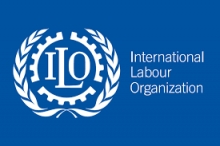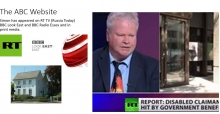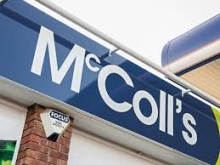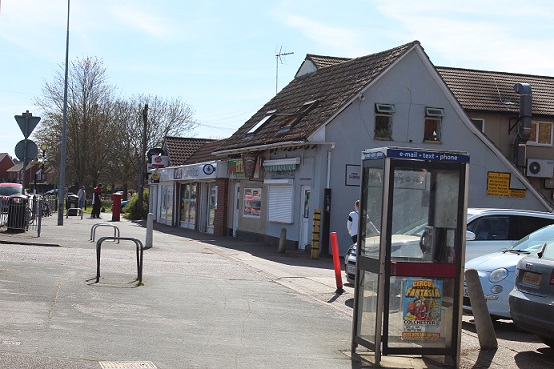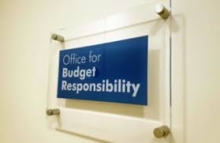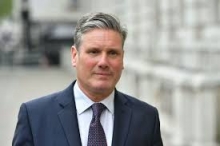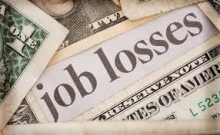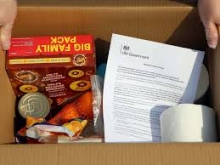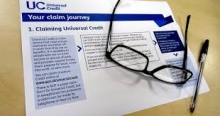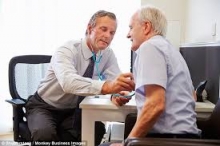Work TV
Watch our TV Channel dedicated to the ‘World of Work’. Explore our video library for informative videos featuring career opportunities at leading companies, franchising opportunities, further education and recruitment professions and their services.
Simon Collyer
International Labour Organisation Predicts Huge Job Losses
INTERNATIONAL LABOUR - The COVID-19 crisis is expected to wipe out 6.7 per cent of working hours globally in the second quarter of 2020 – equivalent to 195 million full-time workers.
Large reductions are foreseen in the Arab States (8.1 per cent, equivalent to 5 million full-time workers), Europe (7.8 per cent, or 12 million full-time workers) and Asia and the Pacific (7.2 per cent, 125 million full-time workers).
Huge losses are expected across different income groups but especially in upper-middle income countries (7.0 per cent, 100 million full-time workers). This far exceeds the effects of the 2008-9 financial crisis.
The sectors most at risk include accommodation and food services, manufacturing, retail, and business and administrative activities.
The eventual increase in global unemployment during 2020 will depend substantially on future developments and policy measures. There is a high risk that the end-of-year figure will be significantly higher than the initial ILO projection, of 25 million.
“Workers and businesses are facing catastrophe, in both developed and developing economies... We have to move fast, decisively, and together. The right, urgent, measures, could make the difference between survival and collapse."
Guy Ryder, ILO’s Director-General
More than four out of five people (81 per cent) in the global workforce of 3.3 billion are currently affected by full or partial workplace closures.
“Workers and businesses are facing catastrophe, in both developed and developing economies,” said ILO Director-General Guy Ryder. “We have to move fast, decisively, and together. The right, urgent, measures, could make the difference between survival and collapse.”
The ILO Monitor 2nd edition: COVID-19 and the world of work , which describes COVID-19 as “the worst global crisis since World War II”, updates an ILO research note published on 18 March. The updated version includes sectoral and regional information on the effects of the pandemic.
According to the new study, 1.25 billion workers are employed in the sectors identified as being at high risk of “drastic and devastating” increases in layoffs and reductions in wages and working hours. Many are in low-paid, low-skilled jobs, where a sudden loss of income is devastating.
Looked at regionally, the proportion of workers in these “at risk” sectors varies from 43 per cent in the Americas to 26 per cent in Africa. Some regions, particularly Africa, have higher levels of informality, which combined with a lack of social protection, high population density and weak capacity, pose severe health and economic challenges for governments, the report cautions.
Worldwide, two billion people work in the informal sector (mostly in emerging and developing economies) and are particularly at risk.
Large-scale, integrated, policy measures are needed, focusing on four pillars: supporting enterprises, employment and incomes; stimulating the economy and jobs; protecting workers in the workplace; and, using social dialogue between government, workers and employers to find solutions, the study says.
“This is the greatest test for international cooperation in more than 75 years,” said Ryder. “If one country fails, then we all fail. We must find solutions that help all segments of our global society, particularly those that are most vulnerable or least able to help themselves.”
“The choices we make today will directly affect the way this crisis unfolds and so the lives of billions of people,” he added. “With the right measures we can limit its impact and the scars it leaves. We must aim to build back better so that our new systems are safer, fairer and more sustainable than those that allowed this crisis to happen.”
ABC Comment, have your say below:

RT TV ex. Russia Today, Makes a Good Call
MEDIA - RT TV (ex. Russia Today) called it right that Boris Johnson was in a critical care unit while the rest of the media mob denounced their news as 'Russian Propaganda'. However, RT TV had in fact called it 'spot on'.
An intensive care unit (ICU), also known as an intensive therapy unit or intensive treatment unit (ITU) or critical care unit (CCU), is a special department of a hospital or health care facility that provides intensive treatment medicine.
The ABC has appeared on RT TV evening news three times and we have found their reporting to be fair and accurate on topics we understand. Of course, the Murdoch press, supporters of the Tory Party, may wish to play down Boris Johnsons health issues. Worse however is SKY TV having on Katie Hopkins as a commentator to give her views. Since when was Katie Hopkins a clinical epidemiologist you might ask? The argument is all a fuss about nothing you might expect from Mistress Gobby whose only contribution it seems is to be controversial. The rest of us may be more particular about whom we get advice from.

Image: Katie Hopkins.
RT TV brings on experts to comment on news items, even if these people might not be celebrities. All credit to RT TV for calling the news on Boris who is clearly more ill that the conventional media wanted us to believe.
Our very best wishes go to Boris Johnson and all those other unfortunate people unlucky enough to catch COVID-19. Feeling ill is bad enough, feeling you might be facing your own death is rather worse. We hope Boris makes a swift recovery.

ABC Comment, have your say below:

Companies Exposing Employees to Risk
COVID-19 - We visited McColls today in Mersea Road, Colchester. A young trainee was being taught to use the till with an instructor. Neither instructor nor the young lady had been provided with a mask, gloves or as they have in Lidls - a protective perspex screen. Customers being served were no more than a couple of feet away (mouth to mouth) from this young trainee and we feel that to fail to protect staff with a mask or gloves amounts to criminal negligence.
The Company are practising social distancing regarding customer queuing but that is irrelevant at the till.
McColls Retail Group is a British convenience shop and newsagent operator, trading under the trading names McColls, Martins and, for shops in Scotland, RS McColl. McColl's also operates post offices in one-third of the estate, making them the largest post office operator in the United Kingdom.
COVID-19 is transmitted by water droplets. These eventually fall to the floor or surfaces where they can get on peoples hands. Not to provide staff with a face mask and gloves is grossly irresponsible. A point will be made to the Company shortly.
ABC Comments, have your say below:

Government Borrowing Set to Jump
GOVERNMENT BORROWING - Public sector net debt is forecast to rise by £125bn or 4.6% of GDP, as the government embarks on the largest spending increase since 1992, according to the Office for Budget Responsibility.
In 2005 the UK “current budget deficit” was less than £20 billion. But then came the worldwide financial crisis of 2008 and subsequent recession. The budget deficit skyrocketed to £50 billion in 2009 and £103 billion in 2010. In the subsequent recovery, the deficit has steadily declined, down to £1.9 billion in 2018. At the end of March 2019 the “current budget deficit” was a surplus of £19 billion.
In terms of Gross Domestic Product, the UK “current budget deficit” in 2005 was less than 2 per cent of GDP and declined to about 0.6 per cent GDP in 2007 and 2008. In the Great Recession, the deficit ballooned, to 6.9 per cent of GDP in 2010. Since then the deficit has steadily declined, to less than one per cent GDP in 2017. At the end of March 2019 the “current budget deficit” was a surplus of 0.9 per cent of GDP. All that will change however as tax revenues fall.
The deficit, the gap between the countries expenditure and tax revenue is the deficit. The debt is the cumulative amount of money owing.
Public Debt in the United Kingdom is principally the debt of the central government.
In 2005 the UK National Debt was less than £0.5 trillion. But then came the worldwide financial crisis of 2008 and subsequent recession. The National Debt increased rapidly and went over £1 trillion in 2011 and over £1.5 trillion in 2016. At the end of March 2019, the National Debt was £1.80 trillion.
In terms of Gross Domestic Product, the UK National Debt in 2005 was about 38 per cent of GDP.
But in the last ten years, in the wake of the Crash of 2008 and subsequent recession, the National has doubled to over 80 per cent GDP but is levelling out as a per cent of GDP. At the end of March 2019, the National Debt was 84.6 per cent of GDP.
We may well see taxes going up post pandemic.
ABC Note: The Office for Budget Responsibility (OBR) is a non-departmental public body funded by the UK Treasury, that the UK government established to provide independent economic forecasts and independent analysis of the public finances.
ABC Comment, have your say below:

TUC Call For Large Universal Credit Increase
TUC - The TUC has called for the basic level of universal credit to be raised to £260 per week for the duration of the COVID-19 outbreak.
Publishing its report 'Fixing the safety net: Next steps in the economic response to coronavirus' today, the TUC highlights that the basic rate of universal credit equates to just a sixth of average weekly pay (even taking into account the recent £20 per week increase) and it urges the government to raise the rate from £94 to £260 per week - comparable to 80 per cent of the Real Living Wage.
While welcoming the steps taken by the government so far, the TUC says more must be done to protect jobs, provide proper sick pay, and protect the livelihoods of those who lose their jobs, and it calls on the government to -
- build on the job retention scheme by increasing its flexibility to support short-time working, clarify that employers can reclaim 80 per cent wage costs for pregnant workers on medical suspension, and work with unions to fix the gaps in the self-employed income support scheme;
- increase the weekly level of sick pay from £94.25 to the equivalent of a week’s pay at the Real Living Wage - around £320 a week - and remove the lower earnings limit for qualification;
- make other amendments to universal credit including suspending conditionality, removing the savings rule, and changing advance payments to grants rather than loans;
- significantly increase child benefit;
- remove the benefit cap;
- remove the minimum hours requirements in working tax credit; and
- introduce a wider package of support for households, including a fully funded council tax freeze, an increase in the hardship fund and a wider package of support for renters.
Commenting on the report, TUC General Secretary Frances O'Grady said -
'Unions have worked closely with government during this crisis to protect livelihoods. But there is still more to do.
People who lose their jobs must get the support they need to make ends meet and to get back on their feet.
If we don’t urgently boost universal credit many risk being plunged into poverty. That is not right.
We need a social security system that can deal with the current pandemic and beyond. It’s time to start a national conversation about how we repair Britain’s safety net and help those who fall on hard times to bounce back.'

Image, TUC General Secretary Frances O'Grady.
ABC Comment, have your say below:

Keir Starmer Wants to Reform Universal Credit
UNIVERSAL CREDIT - Sir Keir Rodney Starmer KCB QC has been elected as head of the Labour Party. Starmer was awarded a knighthood in 2014 for "services to law and criminal justice". Below he appears in the McLibel documentary created by filmmaker Ken Loach.
McLibel (also known as McLibel: Two People Who Wouldn't Say Sorry) is a British documentary film directed by Franny Armstrong and Ken Loach for Spanner Films about the McLibel case. The film was first completed in 1997 as a 52-minute television version after the conclusion of the original McLibel trial. It was then extended with new footage to 85-minute feature length in 2005, after the McLibel defendants took their case to the European Court of Human Rights.
Human Rights lawyer Sir Keir Starmer appears in this documentary film below.
Keir Starmer Wants to Reform Universal Credit and we look forward to hearing more about this initiative.
ABC Comment, have your say below:

US and Spanish Job Losses Soar
PANDEMIC UPDATE - The unemployment rate of the United Kingdom is expected to reach 4.7 percent in 2020, following the outbreak of coronavirus and the closure of businesses due to social distancing measures.
A total of 2,921 people has now died from coronavirus in the UK, according to the Department of Health and Social Care.
New weekly US unemployment claims hit a record high of 6.6m as the effects of the pandemic bite.
According to Trading Economics - the number of Americans filling for unemployment benefits jumped to 6.648 million in the week ended March 28th, a new record high and well above expectations of 3.5 million. The accommodation and food services sector was again the hardest hit by the Covid-19 crisis. The 4-week moving average, which removes week-to-week volatility, also jumped to an all-time high of 2.612 million, while continuing jobless claims hit 3.029 million in the week ended March 21st, the highest since July 2013. The $2.2 trillion package approved by the White House and the Congress increased payments for the unemployed to up to $600 per week for up to four months while the Labor Department eased some filing restrictions, which likely contributed to the rise in the unemployment numbers.
Earlier there was record jump in the number of people applying for unemployment benefit in Spain. The country, the second-worst hit in terms fatalities, has also lost nearly 900,000 jobs.
The sudden increase in those signing up is powerful evidence that the coronavirus crisis is an economic emergency.
The Belarusian Health Ministry has reported just 152 cases of the coronavirus. Neighboring Russia reported 1,836 as of Monday. Belarusian President Alexander Lukashenko has refused to shut down businesses.
ABC Comment, have your say below:

Government Emergency Food Parcels Get a Mixed Reception
EMERGENCY FOOD - The first food packages have been sent to those who were asked by the government to isolate for 12 weeks and shield themselves from coronavirus due to being particularly vulnerable.
The government has dispatched 2,000 food parcels already over this last weekend to those who are unable to leave their homes because of severe health conditions that leave them most vulnerable to Covid-19.
More parcels are to be delivered next week from wholesalers across the country, bringing the first set of deliveries to more than 50,000.
Hundreds of thousands of deliveries could be made each week depending on demand, the government said.
The packages contain essential food and household items such as pasta, fruit and tinned goods.
They are aimed particularly at those who do not have a support network that able to help.
The government’s scheme came amid rows between councils and ministers over the volume and nutritional composition of the free food packages, which are being distributed to people with cancer, heart problems and other respiratory conditions who are advised to “shield” themselves at home for 12 weeks.
The government disclosed this week that its plan to distribute emergency food parcels using commercial food distributors and local authority emergency planning teams was “the biggest effort to deliver supplies to those in need since World War Two”.
Around 1.5 million people have been identified by the NHS as being at high risk from infection, with around 900,000 of these receiving letters over the past few days containing instructions on how to isolate themselves.
ABC Comment, have your say below:

Not Far of a Million People Attempt To Apply For Universal Credit In Two Weeks
UNIVERSAL CREDIT - Almost a million people have attempted to claim Universal Credit in the last two weeks and the public are getting frustrated trying to get through to the DWP on the telephone.
Normally about 100,000 might claim in a period of two weeks. Tens of thousands are struggling to prove their identity.
Now the average person is realizing what all the cuts to the welfare system mean in real terms.
Though the DWP have rushed senior staff to the frontline, the DWP estate - Jobcentre Plus offices had been cut and some 19,000 odd staff let go. The whole system is struggling under these cuts.
ABC Comment, have your say below:

DWP Guide for GP's
DWP -Guide. This is useful information for GP's and a useful guide for the public.
A short guide to the benefit system for GPs and other healthcare practitioners.
Change made
Updated the short guide to the benefit system for general practitioners. Added a new section ‘Money help and debt advice’ and updated sections on: ESA, JSA, UC, UC for carers, help to return to or stay in work and contact details.
You can download below:
ABC Comment, have your say below:

Download the DWP Guide below:


